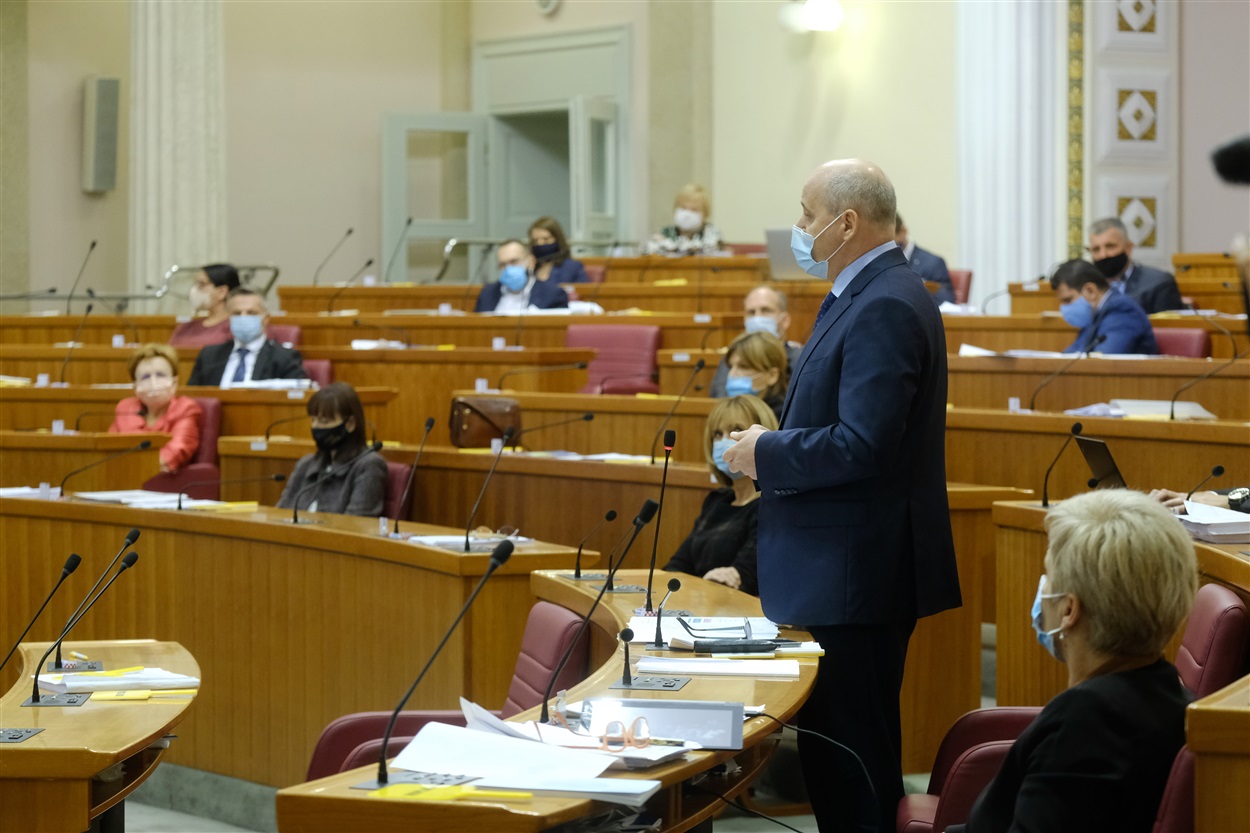
Zagreb - The law on the civilian Homeland War victims was passed on Thursday by 107 to 16 votes, with five members of the Croatian Parliament abstaining from the vote.
During the previous parliamentary debates on the matter, a part of the Opposition expressed fear that new legislation would enable members of the occupying forces to use the entitlements set by the law, however, members of the ruling majority dismissed criticism that this was an attempt to equate the victims and the occupying forces and insisted that the new legislation would rectify the civilisational injustice done to the war casualties.
According to the data provided by the Ministry of War Veterans' Affairs, there will be about 2,500 beneficiaries who will be eligible to use entitlements envisaged by the new legislation.
Željko Sačić of the Sovereignist Party said that the adoption of some of the amendments made the last version of the law better compared to the first bill. He believes that those amendments will make it impossible for the members of the occupying forces and rebels to use the entitlements under the law.
The Parliament adopted the amendments to the Law on Homeland War Veterans whereby applications of disabled war veterans for housing rights and social benefits will be dealt with in speedier proceedings.
Amendments to Criminal Code unanimously adopted
The amendments to the Criminal Code that envisage ex officio prosecution of sexual harassment for all categories of victims and introduce a new offence, the misuse of a sexually-explicit video were unanimously adopted on the last day of the parliament's meeting in the spring/summer season.
Besides strengthening protection mechanisms for victims of domestic and sexual violence and harassment, the amendments envisage punishment for revenge pornography.
All those who share with others intimate videos made consensually for personal use without the consent of the person filmed, thus violating their right to privacy, would now be penalised.
Deepfake pornography, i.e. the use of modern technology to manipulate explicit content to violate someone's privacy, is also defined as a criminal offence.
Those offences are punishable with up to one year in prison, or three if a video becomes available to a larger number of people.
To more strongly counter gender-based violence and better protect victims, the amendments extend the "close person" category to include current and former intimate partners, not just family members, former spouses, life partners, informal life partners or persons with whom a victim has a child or lives in the same household.
All criminal offences committed by a close person will be prosecuted ex officio, and the list of offences without a statute of limitations will now include serious sexual abuse and harassment of children.